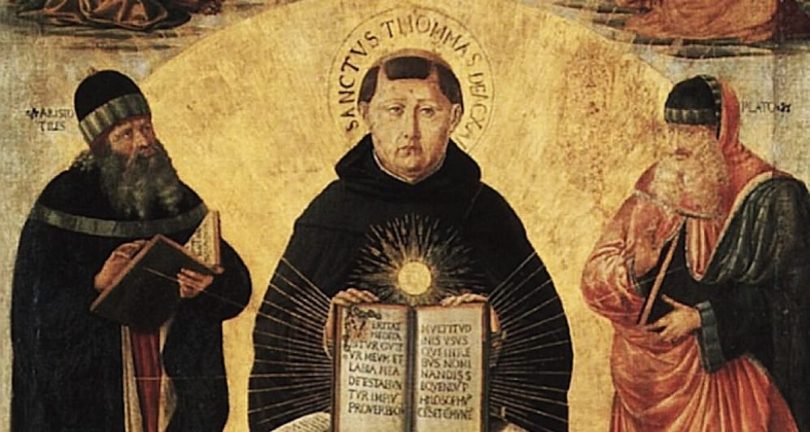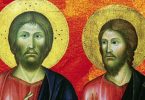In Roman Catholic theology you can be forgiven for your sins, but that doesn’t allow you to go straight to Heaven: only those who are without sin can do that, after being judged at the gates. Good Catholics who sinned in life but have been forgiven, are sent to sit it out in Purgatory for a while and be punished for their sins by having their journey into Heaven postponed. So you can think of Purgatory as a bit like the airport departure lounge on the journey to Heaven: it’s not exactly Hell — but it’s not somewhere you want to spend several years either.
So what actually are indulgences? Assuming you committed a sin but were forgiven for it, an indulgence for the sin allows you to skip the corresponding punishment of sitting in Purgatory. So if the forgiven sin was worth three days in Purgatory, an indulgence for the sin would let you skip those three days of punishment and get to Heaven that bit earlier.
Indulgences were a masterpiece of marketing. They allowed the Catholic church to sell people the right to escape punishment for their sins — but they didn’t reduce the believer’s need for regular church attendance and sessions in the Confessional. Suddenly, a whole new category of lucrative religious merchandise was created, without damaging existing business.
The church originally portrayed indulgences as a means by which society could at least derive some social benefit from sin — rather like the modern idea of state lotteries. But by the Middle Ages, indulgences were an important source of revenue. By the fifteenth century, indulgences, absolutions and dispensations were sold to:
- Relatives wishing to marry each other
- Priests born out of wedlock
- Kings wishing to legitimize their illegitimate children
- Converted Jews wishing to visit their parents
- Catholics wishing to choose their preferred confessor
- Cemeteries wishing to divide up a dead body and bury it in two graves
- Nuns wishing to have maidservants
- Catholics wanting freedom from the requirement for fasting
- Businessmen wanting permission to deal in stolen goods (the fee amounting to around 5% of the value of the stolen items)
- Merchants wishing to trade with Moslems, Egyptians or other unbelievers
(These examples are from a list in “The Decline of the Medieval Church” by A.C. Flick, published by Burt Franklin, NY.)
A conversion to the priesthood via indulgences was the preferred way for nobles to dispose of illegitimate children. Not only could they be legitimized that way, but it could also be arranged that they be appointed to a region a convenient distance away, or sent on a pilgrimage.
Pope John XXII in 1331 had issued a bull explaining that the money did not buy the favor; rather, it was a clerical fee (no pun intended) to cover the cost of paperwork. However, fees seemed to vary according to the social class of the expected buyer and the magnitude of the sin, and were out of all proportion to the actual administrative costs associated with preparing the documentation. The privilege to marry your sister, for example, would cost more than twice as much as privilege to marry your cousin; and nobles wishing to marry relatives were required to pay twice as much again. Fees were often collected by bankers, who were permitted to keep part of the fee for themselves.
There was much complaint about the corruption in the church; however, it was financially difficult for any Pope to do anything about it. Pope Urban V was succeeded by Gregory XI, who finally completed the work of returning the Papacy to Rome; however, after his death there was dissent. The Italians wanted an Italian Pope, and chose Urban VI. However, he ruled in such a high-handed manner that he alienated most of the Cardinals, some of whom questioned his sanity. The French Cardinals returned to Avignon, declared Urban deposed, and elected Clement VII as Pope.
Both Urban VI and Clement VII claimed to be the real Pope, and both proceeded to try to out-spend each other in a kind of medieval Cold War. Urban VI even proclaimed a crusade against Clement VII, and granted special indulgences to those who supported it. The practice of supporting religious war with the granting of indulgences continued under later Popes.
By 1409, the Pope in Rome was Gregory XII, and the Pope in Avignon was Benedict XIII. Benedict XIII pointed out that he was the only surviving Cardinal from before the schism, and that his was therefore the only valid vote — and that he voted for himself as the one true Pope. Gregory XII was similarly obstructive, so the Cardinals summoned the Council of Pisa, declared both Benedict and Gregory deposed, and elected a third Pope, Alexander V. It wasn’t until 1417 that a single generally-recognized Pope, Martin V, was elected.
Source: https://infidels.org/secular_web/feature/1999/indulgences.html
Criticism and Attempts at Reform
There were various attempts to reform the practice of granting indulgences and dispensations. The Council of Constance (1415-1418) gave Bishops the power to block the granting of excessive and arbitrary indulgences; all those who attended the council were granted indulgences to reward them for their vigilance against corruption.
The abuse continued, however, throughout Europe. By the mid 15th Century, it was possible to get dispensations and indulgences for sins which were actual crimes, such as robbery. Priests would impose fasting on the laity, then sell “Butter letter” exemptions allowing people to continue to indulge in their favorite foods. The Priests allowed themselves to ‘observe’ the fasts by changing their diet for the period of fasting. They would often indulge in drinking and debauchery; in fact, Priests often ran the alehouses.
Perhaps the most famous critic of indulgences was the German theologian Martin Luther. In 1517, Albert of Brandenburg sponsored a sale of indulgences across Saxony, to help pay for the construction of Saint Peter’s in Rome–and also to fund Albert’s own appointment as the new Archbishop of Mainz. Luther was outraged, and wrote his most famous work–his 95 Theses criticizing the practice of granting indulgences. He nailed the document to the door of the castle church in Wittenburg, sparking off the Protestant revolution known as the Reformation.
Luther stated that the Pope did not have the power to excuse people from paying the penalties for the sins they had committed–and that people certainly couldn’t buy their way out of punishment, either through money or through good deeds. He questioned the idea that a sinner could buy indulgences and skip punishment which a pious believer would be expected to suffer. He also questioned the church’s true motives in selling indulgences:
“Again: why does not the Pope, whose riches are at this day more ample than those of the wealthiest of the wealthy, build the one Basilica of St. Peter with his own money, rather than with that of poor believers?”
As the Reformation continued, the Catholic Church attempted to respond. At the Council of Trent (1545-1563) the participants refused to make any concession to Protestant critics, and codified Catholic dogma far more than ever before. Decrees were issued proclaiming the validity and importance of holy relics, and the scriptural validity of the worship of the Virgin Mary — and the granting of indulgences. Attempts were made to reduce corruption in the church, but doctrine remained much as before.
So indulgences remained a part of the Catholic canon. In 1567, Pope Pius V prohibited them from actually being sold–but it remained possible to obtain them by doing good works, where “good works” include monetary donations.
Source: https://infidels.org/secular_web/feature/1999/reform.html
The Significance of Indulgences
So to summarize the situation, indulgences were one of the major sources of financial and moral corruption in the Catholic church of the middle ages. Indulgences were also the direct cause of Martin Luther’s break with the church, and hence one of the major causes of the Reformation.
It wasn’t just the corruption that the Protestants objected to. Luther specifically objected to the very idea of indulgences, and as Flick writes on page 450 of his book:
“Nor is it correct to contend that the Reformation was directed only against the abuse of indulgences, for both the use and abuse were condemned.”
That’s why I suspect that the granting of indulgences by today’s Pope will widen the split between Lutherans and Catholics. Is that a good thing? Well, my view is that the more time Christians spend attacking each other, the more likely they are to leave atheists alone.
Moral Implications
So, ignoring the possibility of corruption, what’s wrong with indulgences?
Well, it seems clear to me that they make a mockery of what’s commonly known as ‘Christian morality’. Think about it. You can sin, attend confession and Eucharist to get unquestioning forgiveness from God, and then effectively buy your way out of the punishment you’re due. You don’t even have to feel guilty about whatever it was that you did once you’ve confessed! And although the act performed as part of getting the indulgence is notionally punishment for the sin, come on, who views visiting Rome as a punishment? If someone will pay for the plane tickets, I’m quite happy to be punished right now…
Supposedly those who seen indulgences must be truly penitent of their sins. Even so, indulgences open a loophole in the Christian moral code that’s big enough to drive a truck through. The irony is that Christians often ask atheists “So, if you don’t get punished for your sins, why don’t you lie, cheat and steal the whole time?” Perhaps in future they should ask the Roman Catholic church? Apparently it’s possible for Christians to sin and not get punished too.
This time, indulgences are being granted to those who go on a pilgrimage to Rome. Clearly there are plenty of Catholics who can’t afford the air fare–so are we expected to believe that the rich have an advantage over the poor in the afterlife? That a rich man and a poor man could commit the same sin, but the rich man might escape punishment because he could afford to visit the Vatican? Yes, there are other options for obtaining the indulgence–but money makes them all more convenient. What kind of a moral message is that? As Martin Luther pointed out, it’s not just the corruption and abuse that’s a moral issue–it’s the whole idea of indulgences in the first place.
It’s all very strange. The Pope almost apologized for the Catholic church’s persecution of Galileo. The Church was even contemplating an official apology for the Crusades. Then suddenly, for no apparent reason, they bring back to prominence a practice which had been heavily criticized since the Middle Ages, and which had been used to promote the same crusades they were thinking of apologizing for. And the Pope has justified the decision with some vague comments about it being the end of the millennium. It’s not hard to see why many Catholics were astounded, amused, even embarrassed.
You might be thinking that perhaps this time it will be different. That maybe these days the Catholic church is less likely to grant blessings and dispensations to the morally suspect. Well, consider that in 1993 Pope John Paul II issued a pontifical autograph which bestowed “a special apostolic blessing as a token of abundant divine graces”. The honored recipient? None other than General Augusto Pinochet. A telegram written by Cardinal Angelo Sodano stated that “His Holiness cherishes moving memories of the meeting he had with the members of your family on the occasion of his extraordinary pastoral visit to Chile in 1987”. Sodano was charmed by Pinochet too, writing “I would like to take this opportunity of expressing once again the highest esteem in which I hold your Excellency”. Heartwarming stuff.
Further Reading:
Historical information:
The Decline of the Medieval Church
Volumes 1 and 2
Written by Alexander Clarence Flick
Published by Burt Franklin, NY
The Pope’s high esteem for Pinochet:
Private Eye (issue 969, February 5th 1999)
Present day indulgences:
Enchiridion of Indulgences, Norms and Grants, Authorized English Edition translated from the second revised Edition of the “Enchiridion Indulgentiarum” issued by the Sacred Apostolic Penitentiary, 1968″
mathew
Source: https://infidels.org/secular_web/feature/1999/conclusions.html







